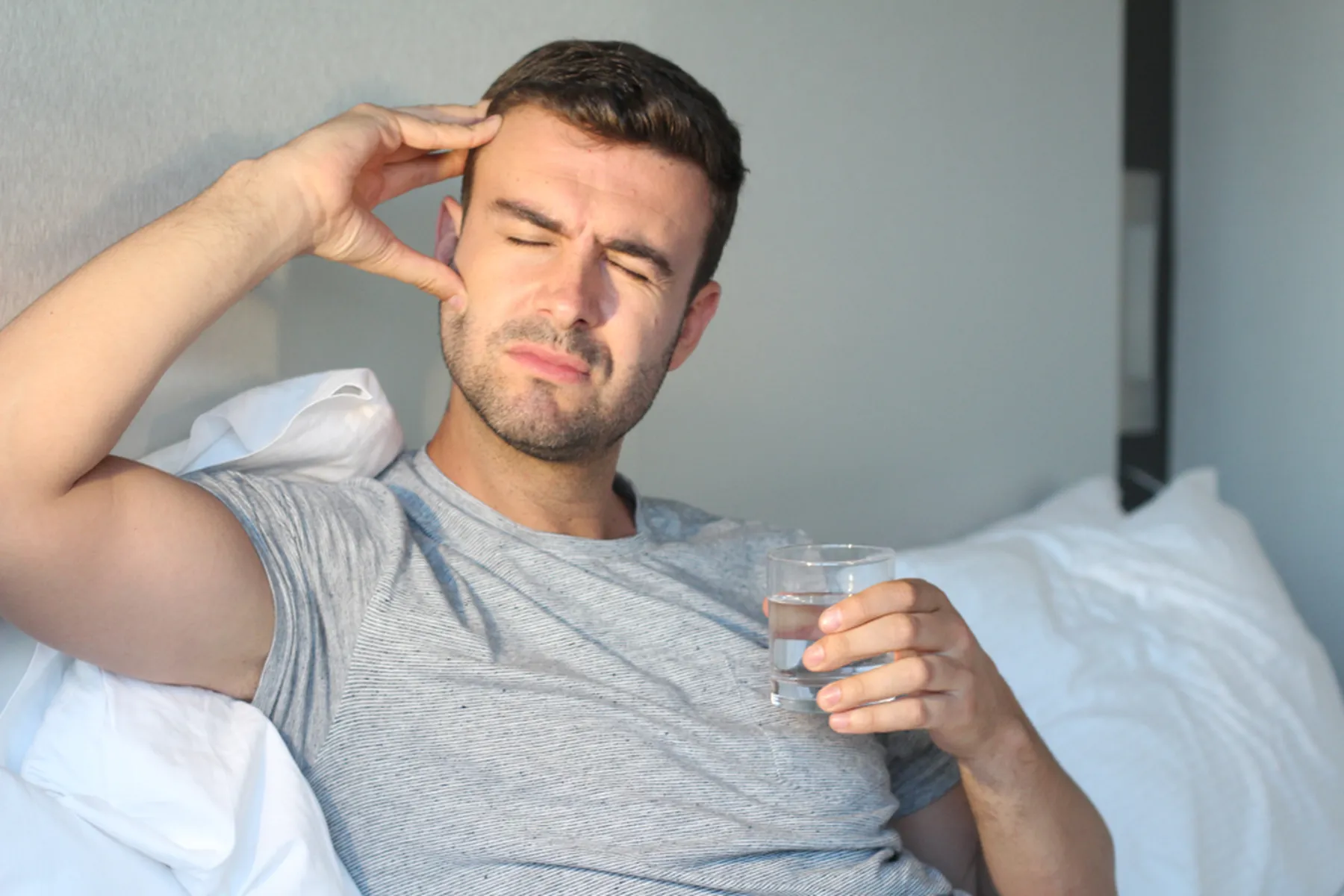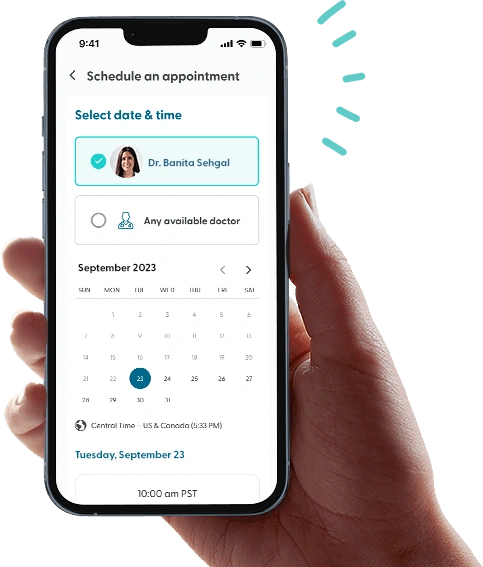Head Hurts When I Bend Over: What Does It Mean?
May 31, 2023
5 min

Highlights
-
If pain occurs in your head when you bend over, this could be one of the initial symptoms of a migraine or tension headache.
-
A mild headache, which is often an achy feeling in the head, is usually nothing to be concerned about. However, more severe headaches can be an indication that you may require medical attention.
-
If your pain worsens over time and your headaches become more frequent, it’s important to see a health care provider who can diagnose and treat your pain.
What Can Cause a Headache When Bending Over?
When you bend over, your blood pressure changes and can either increase or decrease. These fluctuations in blood pressure can lead to head pain.
If your head hurts when you bend over, you may experience a sharp pain, or pain that worsens the longer you are bent over.
There are many causes of headache pain, some are more severe than others. Headaches can often be caused by the following:
- Caffeine withdrawal
- Lack of bowel movement or constipation
- Positional headaches
Positional headaches occur when the body is in a certain position — for example, when you are bent over.
Let’s take a closer look at some of the different types of headaches and the most common reasons you may experience head pain when bending over.

Sinus headaches
If you have a sinus infection — which is an infection of your sinus cavities — pressure may build up in your head, leading to pain and discomfort.
Your sinus passages are hollow spaces in the skull that are lined with mucous membranes.
When these membranes become irritated, inflamed, or infected, they can prevent mucus from draining properly, resulting in fluid buildup in the head and causing a sinus headache.
Sinus headaches can feel like pain in the forehead, cheeks, and around the eyes.
Sinus infections may cause pain when you bend over because this activity increases blood flow to the head, which can further raise the pressure on your sinuses and aggravate the tissue inflamed by a sinus infection.
A sinus headache may be accompanied by other symptoms like nasal congestion, a runny nose, or postnasal drip.
Migraines
Migraine headaches are usually throbbing or pulsing pain on one or both sides of the head.
This can be caused by various factors, including hormonal changes, stress, certain foods, medications, and genetics.
When you bend over, the changes in blood pressure can trigger a migraine.
Other migraine symptoms include sensitivity to light and sound, nausea, vomiting, and vision problems.
Tension headaches
A tension headache is usually caused by muscle tension in your head, neck, and shoulders.
It can feel like a dull, aching pain or like you have a tight band around your head.
When you bend over, the muscles in your neck and scalp become strained and can worsen your tension, causing increased pain.
Treatments for tension headaches include over-the-counter (OTC) medications such as pain relievers, stress reduction techniques, and even physical therapy.
Primary or secondary cough headaches
These headaches are typically triggered by coughing and other strains like sneezing or even laughing. There are two types of cough headaches:
- Primary cough headache
- Secondary cough headache
Primary cough headaches are those that occur without an underlying medical condition and are usually short-lived, lasting only a few minutes.
A primary headache is usually accompanied by other symptoms like pressure and tightness in the head.
A secondary headache is often caused by a medical condition and is usually a long-lasting, severe headache.
Secondary cough headache symptoms include a stiff neck, vomiting, or changes in vision.
A secondary headache can last a few hours, if not longer. Occasionally, secondary headaches can be caused by a brain tumor, a spinal fluid leak, or Chiari malformation.
As secondary headache disorders are usually more prevalent in men, there is actually a condition called a male secondary cough headache.

Dehydration
One of the most common causes of headache pain when bending over is dehydration.
Dehydration headaches occur when your body doesn’t receive enough fluids to function properly.
Your body can lose fluids faster than it can replace them when you don’t drink enough water, sweat excessively, or experience vomiting and diarrhea, and this causes a dehydration headache.
Even mild dehydration can lead to head pain when you bend over.
When Should I Seek Medical Attention for a Headache?
If you get the occasional headache, it’s likely that you don’t have anything to worry about, and you can safely treat it with OTC pain medication.
However, if you are experiencing more severe headaches that feel like a splitting sharp pain that never eases, this could be a sign of something serious like an acute medical condition.
In this case, you would need to consult a health care provider to find the appropriate treatment options.
Where Can I Learn More About Head Pain?
It’s important to consult with a health care provider if you have a severe headache that lasts several days or if the pain interrupts your daily activities.
Luckily, you can speak to a board-certified physician or nurse from the comfort of your home with LifeMD — all you need to do is book your telehealth appointment.
LifeMD makes it easy to stay on top of your
health because talking to a doctor, filling your prescriptions, getting your
labs done—and more—are all easy and cost-effective. Come discover a
healthcare solution built around you and your life.
Connect with a doctor now!






